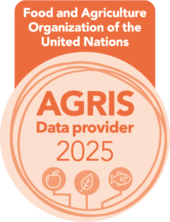Public Knowledge Regarding Adaptation and Mitigation Measures against Climate Change in Lima, Peru
Resumen
Climate change is a current and globally significant issue. Many countries are working together with international agreements, developing strategies to mitigate the impacts it can generate. In Peru, public knowledge regarding climate change adaptation and mitigation measures has been a topic of great national interest but is also somewhat unknown or outdated. The aim of this study was to assess people's level of understanding regarding this subject. The methodology employed was quantitative, using surveys administered to citizens to analyze their perceptions of climate change measures. The results revealed that almost 80% of them have received information about climate change, but 95.9% think that climate change is real, so above 15% of the participants even without getting information about this global issue have a notion about it, 36.6% of the participants did not know about the Peruvian participation in the Paris Agreements as well as the Peruvian law of climate change where around 30% of surveyed are not aware of the regulation gave by Peruvian law, above of 60% of the participants did not know about Peruvian initiatives and actions linked to those measures. Lastly, above 60% of the participants think they are not involved in the adaptation and mitigation process. Also, above 90% of the participants have perceived a temperature rise. Finally, it is advisable to analyze the awareness programs implemented by the government to convey information about climate change adaptation and mitigation measures and keep studying regarding local-level climate change awareness.
Descargas
Referencias
Ajuang, C. O., Abuom, P. O., Bosire, E. K., Dida, G. O., & Anyona, D. N. (2016). Determinants of climate change awareness level in upper Nyakach Division, Kisumu County, Kenya. SpringerPlus, 5(1). https://doi.org/10.1186/s40064-016-2699-y
Altea, L. (2020). Perceptions of climate change and its impacts: a comparison between farmers and institutions in the Amazonas Region of Peru. Climate and Development, 12(2), 134–146. https://doi.org/10.1080/17565529.2019.1605285
Alvi, S., & Khayyam, U. (2020). Mitigating and adapting to climate change: attitudinal and behavioural challenges in South Asia. International Journal of Climate Change Strategies and Management, 12(4), 477–493. https://doi.org/10.1108/IJCCSM-08-2019-0054
Arana-Ruedas, D. P. R., & Moggiano, N. (2022). Agriculture and water resources: UNFCCC influence on Peruvian adaptation regulations to increase resilience against climate change. Scientia Agropecuaria, 13(3), 221–230. https://doi.org/10.17268/sci.agropecu.2022.020
Borquez, R., Aldunce, P., & Adler, C. (2017). Resilience to climate change: from theory to practice through co-production of knowledge in Chile. Sustainability Science, 12(1), 163–176. https://doi.org/10.1007/s11625-016-0400-6
Brooks, N., & Adger, W. N. (2003). Country Level Risk Measures of Climate-Related Natural Disasters and Country level risk measures of climate-related natural disasters and implications for adaptation to climate change Tyndall Centre for Climate Change Research. February.
Das, U., Ansari, M. A., & Ghosh, S. (2022). Does climate knowledge act as a shield for farm livelihoods? Empirical analysis from the coastal and non-coastal ecosystems of India. Theoretical and Applied Climatology, 150(3–4), 1627–1642. https://doi.org/10.1007/s00704-022-04245-8
Fei, Y., Leigang, S., & Juanle, W. (2023). Monthly variation and correlation analysis of global temperature and wind resources under climate change. Energy Conversion and Management, 285(March), 116992. https://doi.org/10.1016/j.enconman.2023.116992
Ganase, S. A. S., & Sookram, S. (2021). Climate change knowledge at the grass roots: the case of Bequia, St. Vincent and the Grenadines. Environment, Development and Sustainability, 23(2), 1105–1132. https://doi.org/10.1007/s10668-020-00620-5
Gärtner, L., & Schoen, H. (2021). Experiencing climate change: revisiting the role of local weather in affecting climate change awareness and related policy preferences. Climatic Change, 167(3–4), 1–20. https://doi.org/10.1007/s10584-021-03176-z
González-Hernández, D. L., Aguirre-Gamboa, R. A., & Meijles, E. W. (2023). The role of climate change perceptions and sociodemographics on reported mitigation efforts and performance among households in northeastern Mexico. Environment, Development and Sustainability, 25(2), 1853–1875. https://doi.org/10.1007/s10668-021-02093-6
Hansen, K., & Żółtak, K. (2022). Social Perception of Non-Binary Individuals. Archives of Sexual Behavior, 51(4), 2027–2035. https://doi.org/10.1007/s10508-021-02234-y
He, R., Jin, J., Qiu, X., Zhang, C., & Yan, J. (2023). Rural residents’ climate change perceptions, personal experiences, and purchase intention–behavior gap in energy-saving refrigeration appliances in Southwest China. Environmental Impact Assessment Review, 98, 106967. https://doi.org/10.1016/J.EIAR.2022.106967
IPCC. (2022). Climate Change: Impacts, Adaptation and Vulnerability.
Iwama, A. Y., Araos, F., Anbleyth-Evans, J., Marchezini, V., Ruiz-Luna, A., Ther-Ríos, F., Bacigalupe, G., & Perkins, P. E. (2021). Multiple knowledge systems and participatory actions in slow-onset effects of climate change: insights and perspectives in Latin America and the Caribbean. Current Opinion in Environmental Sustainability, 50, 31–42. https://doi.org/10.1016/j.cosust.2021.01.010
Jørgensen, S. L., & Termansen, M. (2016). Linking climate change perceptions to adaptation and mitigation action. Climatic Change, 138(1–2), 283–296. https://doi.org/10.1007/s10584-016-1718-x
Khatibi, F. S., Dedekorkut-Howes, A., Howes, M., & Torabi, E. (2021). Can public awareness, knowledge and engagement improve climate change adaptation policies? Discover Sustainability, 2(1). https://doi.org/10.1007/s43621-021-00024-z
Laukkonen, J., Blanco, P. K., Lenhart, J., Keiner, M., Cavric, B., & Kinuthia-Njenga, C. (2009). Combining climate change adaptation and mitigation measures at the local level. Habitat International, 33(3), 287–292. https://doi.org/10.1016/j.habitatint.2008.10.003
Lazo, J. K., Kinnell, J. C., & Fisher, A. (2000). Expert and layperson perceptions of ecosystem risk. Risk Analysis, 20(2), 179–194. https://doi.org/10.1111/0272-4332.202019
Lebel, L. (2013). Local knowledge and adaptation to climate change in natural resource-based societies of the Asia-Pacific. Mitigation and Adaptation Strategies for Global Change, 18(7), 1057–1076. https://doi.org/10.1007/s11027-012-9407-1
Lindsay, A. (2018). Social learning as an adaptive measure to prepare for climate change impacts on water provision in Peru. Journal of Environmental Studies and Sciences, 8(4), 477–487. https://doi.org/10.1007/s13412-017-0464-3
Ling, T. Y., Lin, J. Sen, Lin, C. T., & Lin, C. H. (2022). Citizen engagement under climate change-local communication practice toward resilience. Current Research in Environmental Sustainability, 4, 100184. https://doi.org/10.1016/j.crsust.2022.100184
Masud, M. M., Akhtar, R., Afroz, R., Al-Amin, A. Q., & Kari, F. B. (2015). Pro-environmental behavior and public understanding of climate change. Mitigation and Adaptation Strategies for Global Change, 20(4), 591–600. https://doi.org/10.1007/s11027-013-9509-4
Ministry of Environment. (2021). Resolución Ministerial N.° 096-2021-MINAM - Normas y documentos legales - Ministerio del Ambiente - Plataforma del Estado Peruano. https://www.gob.pe/institucion/minam/normas-legales/1955977-096-2021-minam
Ministry of Environment. (2022a). Catálogo de 84 medidas de adaptación - Informes y publicaciones - Ministerio del Ambiente - Plataforma del Estado Peruano. https://www.gob.pe/institucion/minam/informes-publicaciones/462585-catalogo-de-91-medidas-de-adaptacion
Ministry of Environment. (2022b). Catálogo de Medidas de Mitigación - Informes y publicaciones - Ministerio del Ambiente - Plataforma del Estado Peruano. https://www.gob.pe/institucion/minam/informes-publicaciones/357226-catalogo-de-medidas-de-mitigacion
Mwinkom, F. X. K., Damnyag, L., Abugre, S., & Alhassan, S. I. (2021). Factors influencing climate change adaptation strategies in North-Western Ghana: evidence of farmers in the Black Volta Basin in Upper West region. SN Applied Sciences, 3(5), 1–20. https://doi.org/10.1007/s42452-021-04503-w
Partey, S. T., Dakorah, A. D., Zougmoré, R. B., Ouédraogo, M., Nyasimi, M., Nikoi, G. K., & Huyer, S. (2020). Gender and climate risk management: evidence of climate information use in Ghana. Climatic Change, 158(1), 61–75. https://doi.org/10.1007/s10584-018-2239-6
Pietras, C. J. (2022). Rule-Governed Behavior and Climate Change: Why Climate Warnings Fail to Motivate Sufficient Action. In Behavior and Social Issues (Vol. 31, Issue 1). Springer International Publishing. https://doi.org/10.1007/s42822-022-00109-y
Rahman, M. S., Overgaard, H. J., Pientong, C., Mayxay, M., Ekalaksananan, T., Aromseree, S., Phanthanawiboon, S., Zafar, S., Shipin, O., Paul, R. E., Phommachanh, S., Pongvongsa, T., Vannavong, N., & Haque, U. (2021). Knowledge, attitudes, and practices on climate change and dengue in Lao People’s Democratic Republic and Thailand. Environmental Research, 193(October 2020), 110509. https://doi.org/10.1016/j.envres.2020.110509
Sundblad, E.-L., Biel, A., & Ga, T. (2007). Cognitive and affective risk judgements related to climate change. June. https://doi.org/10.1016/j.jenvp.2007.01.003
Tanner, T., & Horn-Phathanothai, L. (2014). Climate change and development. Climate Change and Development, June 2014, 1–368. https://doi.org/10.4324/9780203818862
Thew, H. (2018). Youth participation and agency in the United Nations Framework Convention on Climate Change. International Environmental Agreements: Politics, Law and Economics, 18(3), 369–389. https://doi.org/10.1007/s10784-018-9392-2
UNDP. (2022). Peru | Climate Promise. https://climatepromise.undp.org/what-we-do/where-we-work/peru
UNDP. (2023). ¿Qué diferencia hay entre adaptación y mitigación? — Agencia Europea de Medio Ambiente. https://www.eea.europa.eu/es/help/preguntas-frecuentes/que-diferencia-hay-entre-adaptacion
UNFCCC. (2015). El Acuerdo de París | CMNUCC. https://unfccc.int/es/acerca-de-las-ndc/el-acuerdo-de-paris
UNFCCC. (2023). Nationally Determined Contributions Registry | UNFCCC. https://unfccc.int/NDCREG
Vignola, R., Klinsky, S., Tam, J., & McDaniels, T. (2013). Public perception, knowledge and policy support for mitigation and adaption to Climate Change in Costa Rica: Comparisons with North American and European studies. Mitigation and Adaptation Strategies for Global Change, 18(3), 303–323. https://doi.org/10.1007/s11027-012-9364-8
Yu, T. K., Lavallee, J. P., Di Giusto, B., Chang, I. C., & Yu, T. Y. (2020). Risk perception and response toward climate change for higher education students in Taiwan. Environmental Science and Pollution Research, 27(20), 24749–24759. https://doi.org/10.1007/s11356-019-07450-7
Zerva, A., Tsantopoulos, G., Grigoroudis, E., & Arabatzis, G. (2018). Perceived citizens’ satisfaction with climate change stakeholders using a multicriteria decision analysis approach. Environmental Science & Policy, 82, 60–70. https://doi.org/10.1016/J.ENVSCI.2018.01.008
Publicado
Número
Sección
Licencia
Derechos de autor 2023 Del Piero R. Arana-Ruedas, Yomira Cruz M., Laura Soto-Guerra, Ewonny Ttito M.

Esta obra está bajo una licencia internacional Creative Commons Atribución 4.0.

Manglar is an open access journal distributed under the terms and conditions of Creative Commons Attribution 4.0 International license









